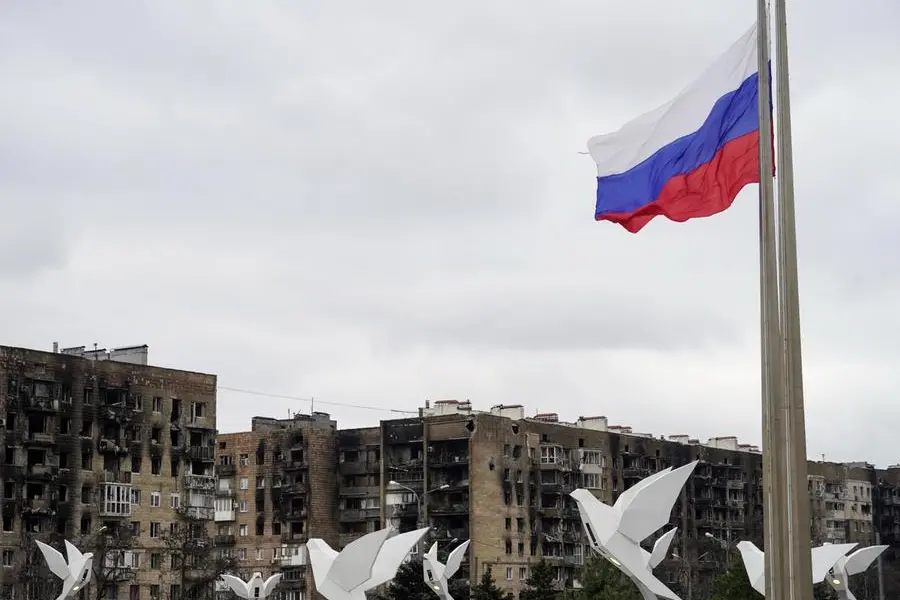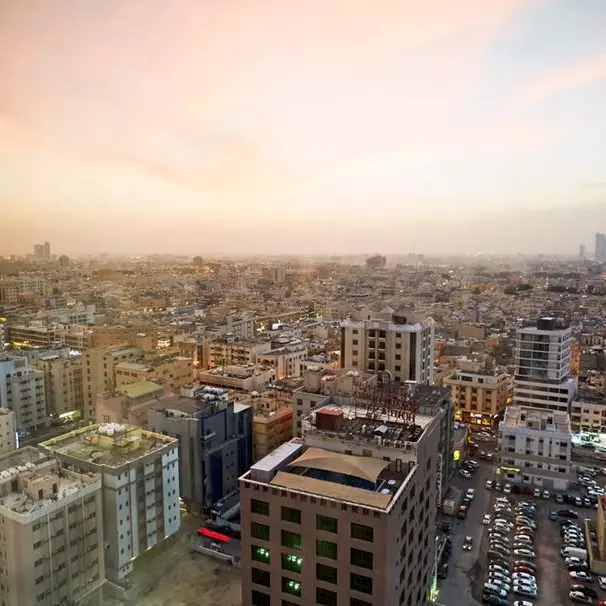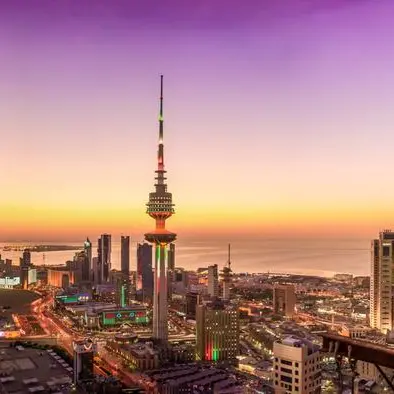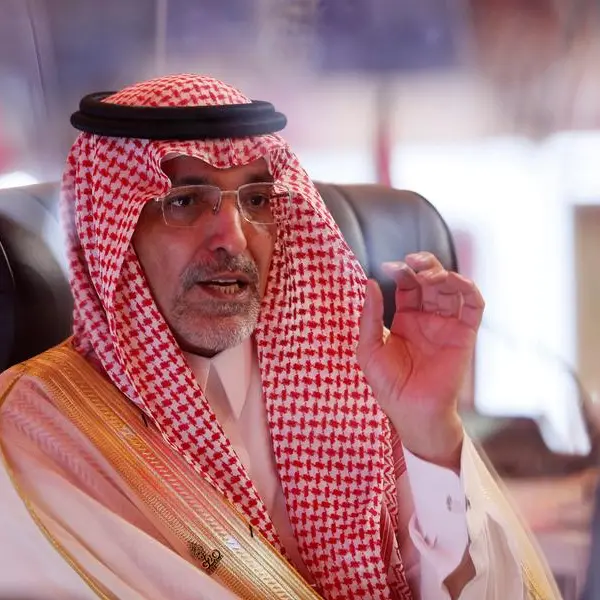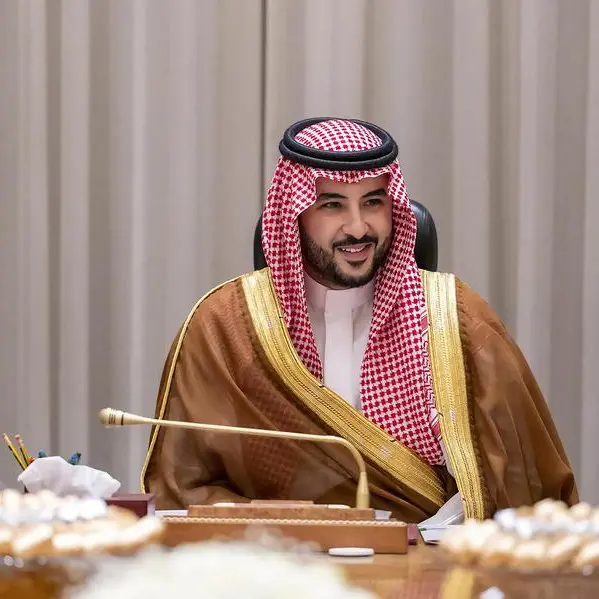PHOTO
Moscow: The sixth joint ministerial meeting of the strategic dialogue between the Gulf Cooperation Council and the Russian Federation was held on Monday, July 10, 2023, in Moscow.
The GCC side was chaired by Sayyid Badr bin Hamad bin Hamoud Albusaidi, Minister of Foreign Affairs of the Sultanate of Oman, Chairman of the current session of the Ministerial Council of the Cooperation Council, and the Russian side was chaired by Mr. Sergey Lavrov, Minister of Foreign Affairs of the Russian Federation. Their Highnesses and Excellencies the Ministers of Foreign Affairs of the GCC countries, and Mr. Jassem Mohamed Albudaiwi, Secretary General of the GCC, participated in the meeting.
The ministers stressed the importance of strategic dialogue between the GCC and the Russian Federation, in order to achieve common interests and enhance friendship, mutual trust and cooperation between the two sides.
They also stressed the important role played by their countries in supporting the global economy, stabilising energy markets, and promoting prosperity.
The ministers discussed a number of regional and international issues, as follows:
The ministers stressed the importance of concerted efforts to achieve peace, security, stability and prosperity in all parts of the world, and the priority of restoring international peace and security, through mutual respect and cooperation between countries to achieve development and progress.
They also emphasised on the importance of adhering to the principles of international law, international humanitarian law and the United Nations Charter, good neighbourliness, and maintaining the existing international order based on respect for the sovereignty, territorial integrity and political independence of states, non-interference in its internal affairs, disuse or threat of force, facing challenges and crises through peaceful means, giving priority to dialogue, and settling disputes through negotiations.
The ministers welcomed the efforts of the GCC states in mediation with the aim of creating conditions for a political solution to the crisis in Ukraine, in accordance with the international law and the United Nations Charter, and expressed hope that these efforts would lead to a just, comprehensive and sustainable peace, and the restoration of security, peace and stability in the region.
The ministers stressed the importance of unhindered access to food and fertilisers to global markets, as well as humanitarian aid, in order to contribute to providing food security for the affected countries.
Moreover, the ministers expressed their condemnation of terrorism, whatever its source, and their rejection of all its forms, motives, and justifications. They stressed the importance of confronting the spread of terrorist ideology and extremism, including the Internet, and working to dry up the sources of financing terrorism. They expressed their determination to strengthen regional and international efforts to combat terrorism and extremism. The ministers also stressed the need to prevent the financing, arming and recruitment of terrorist groups, by individuals or entities, and to address all activities that threaten the security and stability of the region.
The ministers stressed that tolerance and peaceful coexistence are among the most important values and principles for relations between nations and societies. In this regard, the ministers welcomed the adoption of Security Council Resolution 2686, by which the Council recognised that hate speech, racism, racial discrimination, xenophobia and related forms of intolerance, gender discrimination and acts of extremism that can contribute to the outbreak, escalation and recurrence of conflicts.
The ministers welcomed the agreement of the Kingdom of Saudi Arabia and the Islamic Republic of Iran on the efforts and mediation of the Sultanate of Oman, the Republic of Iraq and the People's Republic of China, which included the resumption of diplomatic relations between the two countries, expressing their hope that this agreement would constitute a positive step to resolve differences and end all regional disputes through dialogue and diplomatic means, and stressing the importance of relations between countries are based on understanding, mutual respect, good neighbourliness, respect for sovereignty, non-interference in internal affairs, and adherence to the United Nations Charter and international laws and norms. The ministers also affirmed their support for de-escalation and confidence-building measures between the countries of the region in order to enhance and ensure security in this strategically important region of the world.
The ministers stressed the importance of preserving maritime security and the security of waterways in the region, and addressing threats to maritime shipping lines, international trade, and oil installations in the GCC countries.
The ministers affirmed their support for all peaceful efforts, including the initiative of the United Arab Emirates and its endeavours to reach a peaceful solution to the issue of the three islands, Greater Tunb, Lesser Tunb and Abu Musa, through bilateral negotiations or the International Court of Justice, in accordance with the rules of international law and the United Nations Charter, to resolve this issue is in accordance with international legitimacy.
The Ministers stressed the need to resume a credible peace process aimed at reaching a just solution to the Palestinian cause on the basis of the two-state solution, in accordance with relevant United Nations resolutions and the Arab Peace Initiative, and the establishment of an independent Palestinian state on the 1967 borders, with East Al Quds as its capital, ceasing settlement and all unilateral measures, and respecting the historical status quo in the city of Al Quds and its holy places.
The ministers expressed their support for the efforts aimed at achieving Palestinian reconciliation and national unity on the basis of the political programme of the Palestine Liberation Organisation. They commended the efforts of the Kingdom of Saudi Arabia to revive the Arab Peace Initiative, and took note of the Russian proposals presented at the meeting with the aim of strengthening international and regional support for the peace process.
The ministers expressed their deep concern about the recent Israeli raid on Jenin and the resulting human losses. They stressed the need to create and sustain an environment that allows Palestinians and Israelis to return to serious political dialogue and to refrain from any unilateral actions that would undermine these efforts.
The ministers commended the mediation efforts of the Kingdom of Saudi Arabia and the Sultanate of Oman towards a political settlement in Yemen.
They affirmed their support for the Presidential Leadership Council in Yemen, headed by Dr. Rashad Al-Alimi. Expressing their hope to reach a political solution in accordance with the GCC initiative and its implementation mechanism, the outcomes of the Yemeni National Dialogue Conference (NDC) and Security Council Resolution No. 2216. They called on all Yemeni parties to immediately initiate direct negotiations under the auspices of the United Nations, adhere to the continuation of the armistice, and support the relief, humanitarian and development needs of the Yemeni people. The ministers also called on the United Nations and all countries to cooperate and take a firm stand against the Houthi practices, which contradict international efforts to resolve the crisis.
Furthermore, the ministers stressed the importance of preserving the territorial integrity, independence, unity and sovereignty of the Syrian Arab Republic, and expressed their support for the efforts of Mr. Geir Pedersen, Special Envoy of the United Nations Secretary General to Syria. They stressed the need for more international efforts to support the United Nations mediation in a peace process among the Syrians to achieve a permanent settlement of the Syrian crisis in accordance with the relevant Security Council resolutions. In this regard, they were briefed about the activities of the Astana talks in Syria.
The ministers stressed the importance of the role of the Syrian Constitutional Committee, expressing support for the work of the committee through continuous communication with the Syrian parties in this committee and with Mr. Geir Pedersen, Special Envoy of the United Nations Secretary General to Syria, as a facilitator to ensure its continuity and effectiveness.
The ministers expressed their support for the efforts made to provide care for the Syrian refugees and displaced persons, and work to ensure their safe return to their cities and villages in accordance with international standards. They strongly rejected any attempts to make demographic changes in Syria. In addition, they emphasised the importance of providing unhindered humanitarian access to all Syrians in need across the country.
With a view to helping improve the humanitarian situation in Syria and making progress on a political settlement, the ministers also called on the international community, and the United Nations and its humanitarian agencies to increase their assistance to Syria.
The ministers welcomed the Arab efforts to resolve the crisis in Syria in a step-by-step manner as agreed upon during the Amman meeting on the crisis in Syria on May 1, 2023. The ministers also welcomed the decision of the League of Arab States regarding the resumption of the Syrian government's participation in the meetings of the League's institutions.
Additionally, the ministers expressed their hope that the Syrian government would take the initiative and start taking all necessary steps to reach a comprehensive solution to the crisis.
The Council stressed the importance of Iraq's commitment to the sovereignty of the State of Kuwait and non-violation of international resolutions and agreements, in particular Security Council Resolution No. 833 regarding the demarcation of the borders between the two countries and the agreement to regulate maritime navigation in Khor Abdullah, concluded between the two countries and deposited with the United Nations. The ministers also stressed the need to complete the demarcation of the maritime borders between the Republic of Iraq and the State of Kuwait beyond the mark 162.
The ministers expressed their support for Security Council Resolution No. 2107, regarding the transfer of the matter of prisoners and missing persons, Kuwaiti property and the national archive to the United Nations Mission for Iraq (UNAMI), expressing the aspiration for Iraq to continue cooperation to ensure progress in all files, and calling on Iraq and the United Nations to exert maximum efforts in order to reach a solution towards those files.
The Ministers stressed the importance of protecting the interests of the brotherly Libyan people to achieve security, stability and development in Libya, to guarantee its sovereignty, independence and territorial integrity, to stop interference in its internal affairs, calling for the exit of all foreign forces and mercenaries from Libyan territory as per the UN Security Council Resolution No.2656.
The Ministers underlined their support for the efforts of the United Nations Envoy Abdoulaye Bathily to help the Libyan parties reach a political solution, hold elections and unify state institutions in order to meet the aspirations of the Libyan people and to lay the foundations for security and stability.
They welcomed the consensus reached by the 6+6 joint committee, which was formed by the Libyan House of Representatives and the High Council of State on the laws regulating the election of the Head of State and members of the parliament.
The Ministers affirmed their support for the peace talks in Jeddah and for diplomatic efforts aimed at enabling Sudanese parties to calm tensions, prioritise dialogue, and bridge differences in order to reach an agreement that spares the Sudanese people the woes of war and conflict, meets their aspirations, and contributes to enhancing the country's security, stability, and prosperity in all areas. They praised the role of the GCC countries in evacuating foreign nationals from Sudan and providing humanitarian assistance to Sudan.
The Ministers emphasised the importance of restoring security and stability in the Islamic Republic of Afghanistan and reaching a consensual political solution that takes into account the interests of all components of the Afghan people, in a way that achieves the aspirations of the brotherly Afghan people, and benefits regional and international peace and security. They called on the de-facto authority to implement its obligations to ensure that Afghan lands are not used by any terrorist groups, or exploited for the export of narcotics, urging them to respect and guarantee human rights and freedoms, including women's and girls' rights to education, work, freedom of movement, full and equal participation in public life, as well as protecting the rights of minorities.
Joint Work:
Both sides praised the successful efforts of the OPEC+ countries, which contributed to stabilising the global petroleum market. They emphasised the importance of continuing this cooperation and the necessity for all participating countries to comply with the OPEC+ agreement, to serve the interests of producers and consumers and support the growth of the global economy.
As part of implementing the Memorandum of Understanding for the Strategic Dialogue, which was signed during the 1st joint ministerial meeting of strategic dialogue between the two sides on November 1, 2011, in Abu Dhabi, United Arab Emirates, the ministers adopted the joint action plan for the strategic dialogue between the GCC and the Russian Federation for the period (2023-2028).
The joint action plan identified the expected targets to be achieved during the upcoming period, along with the mechanisms and necessary programmes to implement them and translate the aspirations of both sides into tangible practical steps to achieve those goals. The plan includes enhancing political dialogue between the two sides, continuing regular communication among foreign ministers, senior officials and experts from the GCC countries and the Russian Federation to consistently exchange views on regional and international political issues of common interest, and monitor the progress in carrying out the joint action plan.
Both sides agreed to work towards creating a conducive environment to increase trade and investment, and to develop energy supply chains by encouraging communication between business representatives to benefit from investment opportunities in the GCC countries and in Russia. They also agreed to elevate cooperation in the energy sector and to hold regular meetings for experts and technicians in this field to establish the necessary frameworks, as well as to cooperate in the peaceful use of nuclear energy, nuclear safety, electricity, energy efficiency, renewable energy, green hydrogen industry, and carbon circular economy technologies, with the aim of reducing emissions.
The ministers underlined their support for cooperation in addressing climate change challenges, safeguarding the environment and natural resources, as well as in emergency situations, environmental crises, water policies, and preserving biodiversity. They also agreed on cooperation in the field of agriculture by exchanging expertise in promoting food security, sustainable agricultural development, and upgrading trade in agricultural products between the GCC countries and Russia. In this regard, the ministers praised regional events and initiatives in this area, including the "Green Middle East" initiative, the Middle East and North Africa Climate Week which will be held in Saudi Arabia in October 2023, in addition to the International Horticultural Exhibition (Expo 2023 Doha) in October 2023.
The ministers praised the leading role played by the GCC countries in addressing climate change and reiterated their welcome and support for the United Arab Emirates which will host the UN Framework Convention on Climate Change (COP28) this year to support international efforts in this context.
The joint action plan also includes improving cooperation in the health sector by exchanging expertise among health institutions, and cooperation in higher education and scientific research through communication, exchange of expertise, consultations, and scientific cooperation between universities, higher education institutions, and scientific research centers on both sides.
The ministers underscored the significance of developing cultural cooperation and communication between the peoples of the Russian Federation and the GCC countries, which is considered an essential element in increasing mutual understanding and a fundamental pillar for dialogue and partnership in all fields and supporting cultural and educational exchanges, tourism, trade, and investment. They agreed to strengthen cultural links between the GCC and Russia by encouraging communication between cultural institutions and also reached an agreement to cooperate in the field of sports by designing training programmes for national sports teams on both sides and organsing joint activities and meetings in sports facilities.
At the end of the meeting, the ministers expressed their hope that this strategic dialogue and the results achieved in it would contribute to strengthening the friendship and cooperation between the GCC countries and the Russian Federation, and elevating communication between peoples, to achieve common interests and lead to maintaining security, peace, prosperity, and stability in the world. The ministers decided to hold the 7th ministerial meeting for the strategic dialogue in Qatar during the year 2024.
